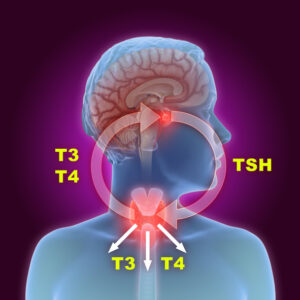ELDERLY PRIMIGRAVIDA : definition, etiology, complication, management
ELDERLY PRIMIGRAVIDA
- One with high fecundity a women married late but conceives soon after
- One with low fecundity women married early but conceives long after marriage
ETIOLOGY / CAUSES OF ELDERLY PRIMIGRAVIDA :
The etiology, or causes, of becoming an elderly primigravida can include several factors:
- Delay in Childbearing: Many women today delay childbirth due to various reasons such as career advancement, financial stability, or personal choice. This delay can naturally lead to a first pregnancy occurring at an older age.
- Changing Societal Norms: Cultural and societal shifts have led to changes in when women choose to start a family. Women may prioritize education and career in their younger years, delaying pregnancy until later in life.
- Advancements in Reproductive Health: Improved access to contraception and family planning services has enabled women to delay pregnancy until they feel ready, which often happens later in life.
- Medical Advances and Assisted Reproductive Technologies (ART): Technologies like in vitro fertilization (IVF) have made it possible for older women to conceive. Some elderly primigravida may have used ART to achieve pregnancy.
- Health Factors: Older age in women can be associated with higher rates of certain health conditions such as diabetes, hypertension, or obesity, which can affect fertility and pregnancy outcomes.
- Genetic Considerations: Advanced maternal age is associated with increased risks of chromosomal abnormalities such as Down syndrome, which may influence the decision to become pregnant later in life.
- Psychosocial Factors: Personal circumstances, such as finding a suitable partner later in life or wanting to achieve certain life goals before starting a family, can also contribute to becoming an elderly primigravida.
Overall, the etiology of elderly primigravida is multifactorial, influenced by a combination of societal trends, personal choices, reproductive health advancements, and biological factors associated with aging.
COMPLICATION OF ELDERLY PRIMIGRAVIDA :
complications due to the physiological changes that occur with advancing maternal age. Some of the notable complications include:
- Increased Risk of Chromosomal Abnormalities: As women age, the risk of chromosomal abnormalities such as Down syndrome (trisomy 21) increases. This is primarily due to errors in meiosis that become more common with advanced maternal age.
- Gestational Diabetes: Older mothers have a higher risk of developing gestational diabetes mellitus (GDM), a condition characterized by high blood sugar levels during pregnancy. GDM can lead to complications for both the mother and the baby if not managed properly.
- Hypertension and Preeclampsia: Maternal age is a risk factor for developing hypertension (high blood pressure) and preeclampsia, a condition characterized by high blood pressure and protein in the urine after 20 weeks of pregnancy. Preeclampsia can lead to serious complications such as eclampsia and organ damage if not treated promptly.
- Increased Risk of Cesarean Section: Older primigravida are more likely to require a cesarean section delivery compared to younger mothers. This may be due to factors such as decreased uterine tone, higher rates of pregnancy complications, and increased medical interventions.
- Placental Abnormalities: Advanced maternal age is associated with an increased risk of placental abnormalities, such as placenta previa (where the placenta partially or completely covers the cervix) or placental abruption (where the placenta separates from the uterine wall prematurely).
- Increased Risk of Miscarriage and Stillbirth: Older maternal age is associated with higher rates of miscarriage (spontaneous loss of pregnancy before 20 weeks) and stillbirth (loss of pregnancy after 20 weeks). These risks are partly due to increased incidence of chromosomal abnormalities and other medical conditions.
- Fetal Growth Restriction: Older maternal age has been associated with an increased risk of intrauterine growth restriction (IUGR), where the fetus does not grow at a normal rate inside the womb. This can lead to complications during labor and delivery.
- Longer Recovery Time: Older mothers may experience longer recovery times after childbirth compared to younger mothers, particularly if they undergo cesarean section or experience complications during pregnancy.
- Preterm labor
- Impaired joint mobility
- Falling lactation
MANAGEMENT OF ELDERLY PRIMIGRAVIDA :
The management of elderly primigravida (women pregnant for the first time at age 35 or older) involves comprehensive care to optimize maternal and fetal outcomes, considering the increased risks associated with advanced maternal age……..
- Preconception Counseling: For women planning pregnancy at an older age, preconception counseling is crucial. This involves discussing medical history, assessing risk factors, and providing guidance on optimizing health before conception. This may include advice on nutrition, lifestyle modifications, and screening for pre-existing medical conditions.
- Early Prenatal Care: Early initiation of prenatal care is essential for monitoring maternal and fetal health closely. Healthcare providers will schedule regular prenatal visits to monitor the progress of pregnancy, screen for complications, and address any concerns promptly.
- Screening and Diagnostic Tests: Elderly primigravida often undergo additional screening tests to assess for chromosomal abnormalities and other medical conditions. Common tests include:
- First-trimester screening: Combined ultrasound and blood tests to assess risk for chromosomal abnormalities such as Down syndrome.
- Amniocentesis or chorionic villus sampling (CVS): These diagnostic tests may be offered for definitive diagnosis of chromosomal abnormalities if initial screening tests indicate a higher risk.
- Gestational diabetes screening: Screening typically occurs between 24-28 weeks of pregnancy to detect gestational diabetes early.
- Monitoring for Pregnancy Complications: Close monitoring for complications such as gestational hypertension, preeclampsia, gestational diabetes, placental abnormalities, and fetal growth restriction is essential. This may involve regular blood pressure checks, urine tests for protein, fetal growth ultrasound scans, and Doppler studies to assess blood flow to the placenta.
- Nutritional Counseling: Adequate nutrition is crucial during pregnancy, especially for older mothers who may have specific dietary needs or be at higher risk for gestational diabetes. Healthcare providers may recommend dietary adjustments and possibly supplementation of vitamins and minerals like folic acid and iron.
- Psychological Support: Pregnancy at an older age can bring unique emotional and psychological challenges. Providing psychological support and counseling to address concerns about pregnancy risks, labor and delivery, and parenting can be beneficial.
- Delivery Planning: Healthcare providers will discuss delivery options based on individual circumstances, taking into account maternal health, fetal well-being, and any pregnancy complications. For some elderly primigravida, elective cesarean section may be recommended based on medical indications or previous cesarean history.
- Postpartum Care: Postpartum care is essential to monitor recovery and address any complications that may arise after childbirth. This includes assessing physical and emotional well-being, breastfeeding support, contraception counseling, and screening for postpartum depression.
- Continued Monitoring Beyond Pregnancy: Older mothers may have ongoing health concerns post-pregnancy, such as managing chronic conditions or addressing long-term effects of pregnancy. Continued follow-up with healthcare providers is important to ensure optimal health and well-being.
Overall, the management of elderly primigravida involves a multidisciplinary approach with close collaboration between obstetricians, midwives, maternal-fetal medicine specialists, and other healthcare professionals to provide personalized care and optimize outcomes for both the mother and the baby.



